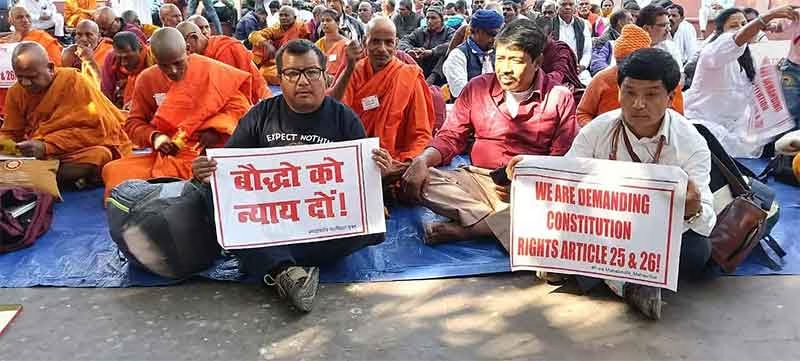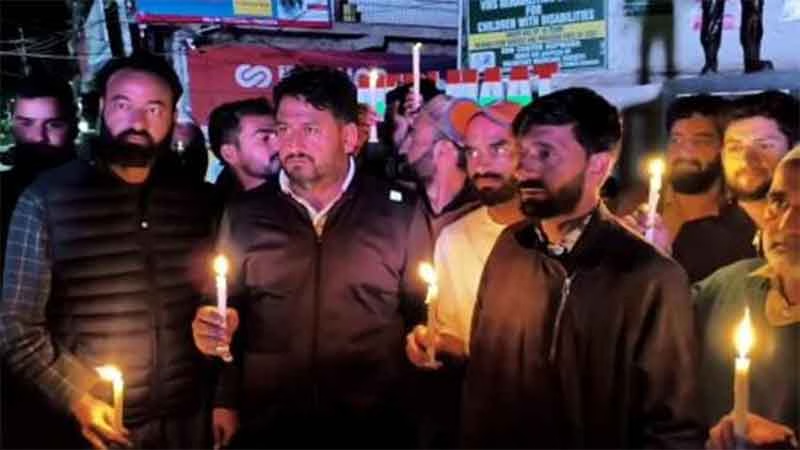
The new education policy 2020 is being implemented gradually. Apart from other things, it has focused on Indian knowledge systems and Indian traditions. The changes that pertain to History have deleted the Delhi Sultanate and Mughal rule from the text-books. A good seven centuries of history stands relegated into absentia. This is a pretty long period by any standards.
“While NCERT had previously trimmed sections on the Mughals and Delhi Sultanate — including detailed account of dynasties like Tughlaqs, Khaljis, Mamluks, and Lodis and a two-page table on Mughal emperors’ achievements — as part of its syllabus rationalization during the COVID-19 pandemic in 2022-23, the new textbook has now removed all references to them,” says and article in The Economic Times.
All references to the Delhi Sultanate and Mughal rulers have been deleted from 7th standard text-books. In addition, references in other books to Muslim rule stand deleted. What also stands deleted is the reference to post-Mumbai (1992-93 violence), post-Gujarat violence (2002), the references to Nathuram Godse (Gandhi’s killer) being a trained pracharak of Rashtriya Swayamsevak Sangh or RSS, the ban on RSS in the aftermath of Gandhi’s assassination among others. While the Kumbh Mela finds a place, the stampede that caused the death of many devotees and at the New Delhi rail station stampede have no mention.
All this began with the Covid-19 period when the pretext offered was “reducing the burden on students”, followed by ‘rationalisation’, which meant deletion of portions that caused discomfort to the Hindu Nationalist ideology.
For, demonisation of Muslims and spreading hate against them, and the Mughals, have been presented as major villains of our history. Some earlier kings like Allauddin Khilji have also been on the hammer of the Hindutva narrative. So far, the demonisation of Muslims was structured around temple destruction by Muslim kings, which has been contested by rational historians. The spread of Islam by Muslims kings using their sword was another pillar of this. This point is totally off the mark as conversions to Islam took place due to social interaction with Muslim Arab traders to begin with. Later, many low castes embraced Islam to escape the tyranny of the caste system.
The ideology of Hindutva has gone to the extent of presenting this period as a dark period when the ‘Holocaust against Hindus’ took place. No doubt the era of kingdoms is full of war for political reasons. Kings always wanted to expand their regime and in the process many people were killed. To call it holocaust, is totally off the mark. Their (Hindutva) narrative actually takes off from the communal historiography introduced by the British to pursue the policy of ‘divide and rule’. In this, all the motives of kings are related to religion and kings are presented as symbols of religious communities.
The Hindu communal historiography took this further by claiming that Muslims and Christians were ‘foreigners’ who have ‘tormented’ Hindus. The Muslim communal historiography presented the other side of the coin where Muslims are regarded as rulers and Hindus as subjects. They presented that Muslims are the logical rulers of this land.
The later trajectory of this logic did assist the British to divide our composite land into India and Pakistan. Savarkar articulated that there are two nations in this country, and Jinnah went on to demand a separate country for Muslims, Pakistan. Pakistan fell into the trap of Muslim communalism right from the word go, and as far its text-books are concerned, they presented the beginning of Pakistan with Mohammad bin Kasim in the Eighth Century. Today, their history books have totally deleted any reference to Hindu rulers. The hate which Muslim communalism spread against Hindus peaked with their school texts removing all the references to Hindu kings and culture.
In a way, India, during the past three decades, has been walking in the footprints of Pakistan. The mirror image of Pakistan’s trajectory is being copied probably to the last comma. This point was highlighted by Pakistan’s poet Fahmida Riyaz. In the aftermath of the Babri Masjid demolition, she wrote “Arre Tum bhi Ham Jaise Nikale, Ab Tak Kahan Chhupe the Bhai’ (Ohh! you have also turned out like us, where were you hiding so far).
Prior to Hindutva ideology coming to total control of Indian education, the RSS shakhas (morning drills) were spreading the communal version of society through multiple mechanisms like its shakha bauddhis, Ekal Vidyalayas and Shishu Mandirs. In due course, mainstream media and social media also came to its service.
As such culture is a continuously evolving process. During the period of History under the hammer of Hindutva, a lot of social changes took place. Apart from the architecture, the food habits, dress and literature, the synthesis in the field of religion, the noble traditions of Bhakti and Sufi tradition developed. It was during this period that Sikhism emerged and flourished.
Now this political ideology may have to change track. With Muslim rulers out of the way, how will they demonise Muslims now? Newer techniques may be on the way to substitute Aurangzeb or Babar, as now they will be defunct!
History is very central to the concept of nationalism. German social psychologist Erich Fromm points out that ‘History is to Nationalism what poppy is to the opium addict’. Since BJP came to power as NDA in 1998, the major thing they did was what is called “saffronisation of education”. Here history has presented the narrative of ‘glorious and brave’ Hindu Kings versus ‘evil and aggressive’ Muslim kings. The charge has been that so far History has been written by Left historians, who focused on the Delhi rulers and who were pro-Muslim. The point is that text-books did present the details of particular dynasties depending on the historical length of their rule.
History books in the decades of the 1980s had a good deal of presentation of Hindu as well as Muslim kings. The narration was not revolving just around religion but a holistic view of communities was presented– trade, culture, literature among others.
Still, it is true that the ruler, ‘King-centric History’ is not what we need to build our future. We need to focus on diverse sections of society, the Dalits, women, adivasis and artisans, who do not find much place in such narratives.
Subscribe to Our Newsletter
Get the latest CounterCurrents updates delivered straight to your inbox.















































